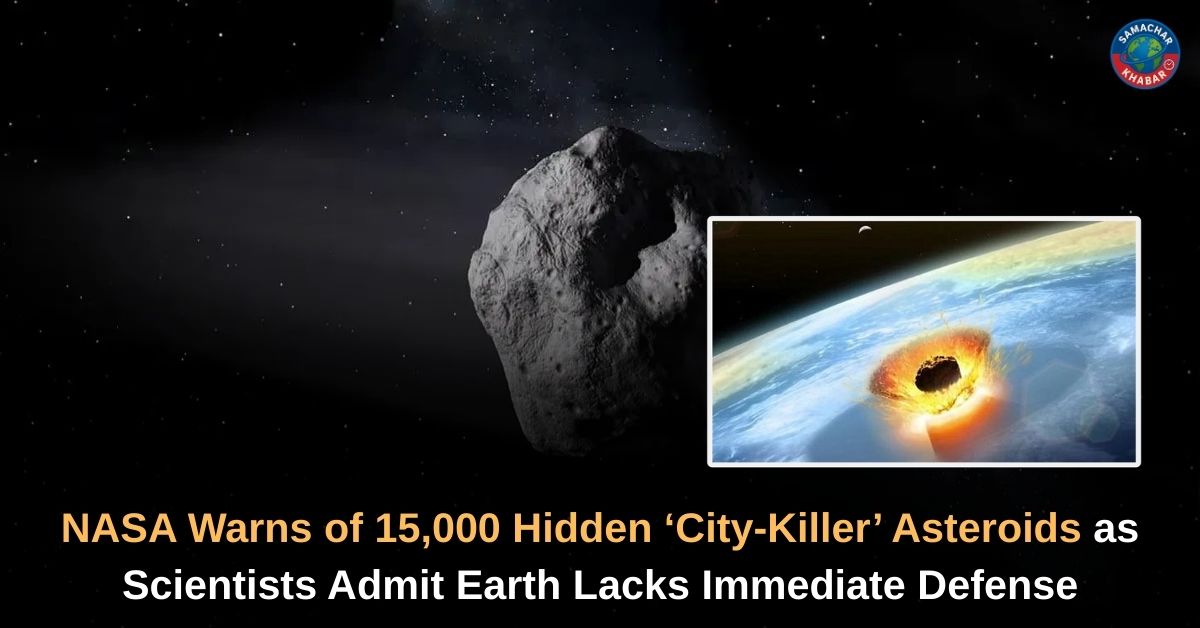Global conflicts continue to define the international landscape with renewed intensity. In Sudan, the seizure of El Fasher by the paramilitary Rapid Support Forces (RSF) has raised grave fears of ethnically motivated mass killings in Darfur. Meanwhile, the ceasefire in the Gaza Strip remains volatile, with both Israeli and Hamas officials alleging violations and the US affirming Israel’s right to self-defense. In the Russo-Ukrainian War, a proposal to halt fighting along the current frontlines has been rejected by Russia, even as a UN inquiry points to war crimes involving the use of drones against civilians.
Highlights
- Sudan/Darfur: The RSF’s capture of El Fasher, the last major army stronghold in Darfur, has led to reports of mass killings and summary executions of civilians, with UN officials warning of ethnically motivated atrocities.
- Gaza Ceasefire: The temporary truce is highly volatile; Israel claims a violation over the status of recovered remains, while the US stated Israel retains the right to self-defense against imminent threats.
- Russo-Ukrainian War: Russia has rejected a US-backed proposal to freeze the war at the current frontlines, maintaining a maximalist position despite calls for peace.
- War Crimes: A UN inquiry reports that Russian forces are using drones to hunt down and target Ukrainian civilians near the frontlines, calling the tactic a potential crime against humanity.
- Hezbollah Disarmament: The Lebanese army is reportedly using its resources to dismantle Hezbollah arms caches in southern Lebanon as part of the regional ceasefire agreement.
Global Conflicts Intensify: Escalations in Sudan, Gaza, and Ukraine Mark a Grim Turning Point
The ongoing Sudanese Civil War has reached a critical and devastating point with the fall of El Fasher, the capital of North Darfur. The capture by the Rapid Support Forces (RSF) over the weekend has been immediately followed by harrowing reports from the UN and aid groups of ethnically motivated mass killings and summary executions of civilians attempting to flee. The city was home to hundreds of thousands of internally displaced persons, and its fall gives the RSF control over all five state capitals in the Darfur region, marking a major turning point and significantly escalating the humanitarian crisis.
In the Middle East, the third major ceasefire in the Gaza War remains deeply strained. Israeli Prime Minister Netanyahu’s office accused Hamas of a “clear violation” related to recovered remains, sparking discussions on a response. Simultaneously, the US affirmed Israel’s right to self-defense against “imminent threat,” following an Israeli strike on an alleged Islamic Jihad member. The conflict’s impact extends to the Israel-Hezbollah front, where the Lebanese army is depleting its resources to clear Hezbollah weaponry as per the regional de-escalation deal.
Also Read: Inside the Gaza Flotilla Arrest: Greta Thunberg’s Alleged Ordeal in Israeli Custody
Meanwhile, the Russo-Ukrainian War sees diplomatic efforts hitting a wall. A proposal endorsed by the US and Ukraine’s President Zelenskyy to freeze the conflict along the current battle lines was outright rejected by Russian officials. Russia continues to prioritize battlefield advances over a prolonged ceasefire, which it fears would allow Ukraine to rearm. This diplomatic stalemate occurs as a UN inquiry released a report accusing Russian forces of using drones to specifically hunt and hound Ukrainian civilians out of their homes near the frontlines, constituting what the inquiry called a crime against humanity.
Sudan: Escalating Atrocities and Humanitarian Collapse
The fall of El Fasher marks a major territorial victory for the Rapid Support Forces (RSF), cementing their control over the entire Darfur region’s five state capitals.
- Horrific Reports of Atrocities: The UN and aid groups have received multiple credible reports of grave atrocities in El Fasher following its capture. These include summary executions of civilians and former combatants, sexual violence against women and girls, and ethnically motivated killings, including the execution of people with disabilities who were unable to flee.
- Humanitarian Crisis Deepens: The city, which had been under a brutal 18-month siege, was home to hundreds of thousands of internally displaced persons (IDPs). An estimated 26,000 people have fled in recent days, facing armed checkpoints, arbitrary arrests, and harassment along escape routes.
- External Interference: UN Secretary-General António Guterres called the development a “terrible escalation,” stressing that the international community must address the “growing external interference” by countries providing weapons to the warring parties, which undermines a political solution.
Gaza: Ceasefire Strains and Renewed Strikes
The fragile U.S.-brokered ceasefire in the Gaza War is under immense pressure following incidents of alleged violation by both sides.
- Hostage Remains Controversy: The immediate trigger for renewed tension was Israel’s accusation of a “clear violation” by Hamas related to the recovered remains of a missing hostage. Netanyahu’s office stated that the remains returned were only partial, and this failure to return all remains as required by the deal, combined with an attack on Israeli forces in southern Gaza, led the Prime Minister to order “immediate and powerful strikes” in the Gaza Strip.
- Hamas Reaction: Hamas’s armed wing, the Al-Qassam Brigades, announced it was postponing a planned handover of a body of a recovered hostage, blaming Israel for its own ceasefire violations and warning that renewed Israeli attacks would disrupt search and recovery operations.
- US Stance: The US affirmed Israel’s right to self-defense against an “imminent threat,” following an Israeli strike on an alleged Islamic Jihad member, underscoring the delicate nature of the truce.
Ukraine: Diplomatic Deadlock and War Crimes Report
Diplomacy to end the full-scale Russian invasion of Ukraine has failed to gain traction, with Moscow prioritizing its military objectives.
- Rejection of “Freeze” Proposal: A proposal endorsed by the US and Ukrainian President Volodymyr Zelenskyy to freeze the conflict along the current battle lines was outright rejected by Russian officials. Zelenskyy had cautiously called the proposal a “good compromise,” but Russia continued its advance, fearing that a ceasefire would allow Ukraine to rearm.
- Crimes Against Humanity: A UN inquiry released a harrowing report accusing Russian forces of systematically using drones to target and hound Ukrainian civilians near the frontlines, particularly in the Kherson, Mykolaiv, and Dnipropetrovsk regions. The report concluded that these actions constitute the crimes against humanity, including murder and forcible transfer of population, aimed at deliberately depopulating the regions.
- Systematic Drone Warfare: The investigators found that the Russian drone operators intentionally targeted not just individuals and homes, but also ambulance crews, fire brigades, and humanitarian distribution points, creating a “permanent climate of terror” and forcing thousands to abandon their homes.
Human Life vs Power Politics
From fears of mass killings in Sudan after El Fasher fell, to the collapsing ceasefire in Gaza, to the stalled peace process in the Russia–Ukraine war, one pattern is clear: civilian lives are being traded for power.
Sant Rampal Ji Maharaj’s Satgyan calls this the core disease — when territory, control, and revenge matter more than human life, every “peace deal” becomes theatre. Satgyan says real security begins only when leaders accept that every life, beyond race, border, or religion, is under one Supreme Power and cannot be treated as expendable. Without that shift from domination to protection, this crisis will not end, it will simply relocate.
Did you ever wonder why people and nations wage wars against each other? Why can’t people live peacefully and in harmony? Where is the humanity in humans?
In this world ruled by Satan, people’s minds are filled with animosity and psychological corruption. There’s scarcity in his universe and people often end up fighting or waging wars not only on earth but in other spiritual realms too. Because none of the nations can claim they are self-sufficient. People often fight for their religious faiths, territorial ambitions, to gain economic benefits from other nations.
This can stop once people know where they come from and how blissful that place is. Once they understand who our true “Father in Heaven” is, no one will be able to fight with or hate others. True spiritual knowledge can put an end to this chaos and this is bound to happen by around 2032.
A truly enlightened saint will turn the tides of this conflict and bring the golden era on our planet. All nations will be united and there will be peace. That saint is none other than Saint Rampal Ji Maharaj. His ideologies will awaken humanity in the masses and will lead to a paradigm shift. To know more about Him, please read this phenomenal book “Gyan Ganga”
FAQs
Q1: What is the current status of El Fasher in Sudan?
A: The city of El Fasher, in North Darfur, has been captured by the paramilitary Rapid Support Forces (RSF) after the Sudanese army withdrew. The RSF now controls all five state capitals in Darfur, and the situation is critical, with severe humanitarian concerns and reports of mass atrocities.
Q2: Why is the Gaza ceasefire facing strain?
A: The ceasefire is stressed due to mutual accusations of violations. Israeli officials cited the status of recovered remains and their right to self-defense, while Hamas also alleged breaches. The regional agreement requires the Lebanese army to clear Hezbollah weapons, indicating broader regional implementation challenges.
Q3: What is the latest on the Russo-Ukrainian peace negotiations?
A: Peace efforts are currently stalled, as Moscow rejected a US-backed proposal to freeze the war at current frontlines. Moscow argues such a halt would allow Ukraine to regroup and maintain its demand for a more comprehensive settlement.














